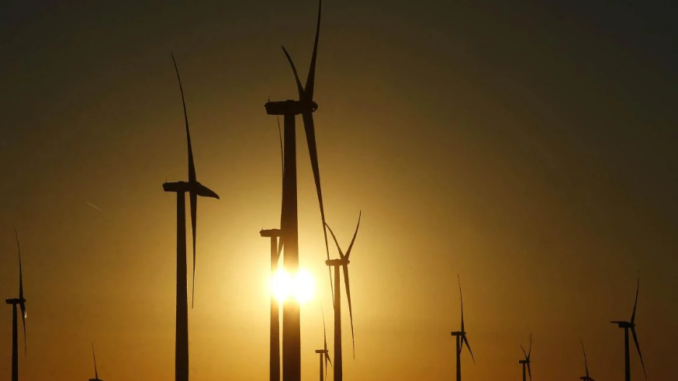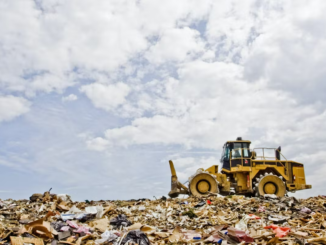
A judge has ordered the removal of a wind farm in Osage County and set a trial for damages in a win for the Osage Nation and its Mineral Council, which, along with the federal government, have been fighting the erection of the turbines for more than 10 years.
U.S. Court of International Trade Judge Jennifer Choe-Groves issued the ruling Wednesday in Tulsa federal court against Osage Wind LLC, Enel Kansas LLC and Enel Green Power North America Inc.
The ruling grants the United States and the Osage Nation through its Minerals Council permanent injunctive relief via “ejectment of the wind turbine farm for continuing trespass.”
The Minerals Council is an arm of the Osage Nation that manages the Osage Minerals Estate.
“On the record before the Court, it is clear the Defendants are actively avoiding the leasing requirement,” Choe-Groves said. “Permitting such behavior would create the prospect for future interference with the Osage Mineral Council’s authority by Defendants or others wishing to develop the mineral lease.
“The Court concludes that Defendants’ past and continued refusal to obtain a lease constitutes interference with the sovereignty of the Osage Nation and is sufficient to constitute irreparable injury.”
Osage Minerals Council Chairman Everett Waller said in an interview Thursday morning that he was still “stunned” by the ruling.
“This is a win not only for the Osage Minerals Council; this is a win for Indian Country,” Waller said.
Osage Wind, for its part, claimed that while an appeals court found that it had “mined without a lease in 2014, it did not hold that Osage Wind was obligated to obtain a lease for that completed mining or for any other ongoing purposes.”
The legal saga has been ongoing for more than a decade, at one point reaching the U.S. Supreme Court.
The Osage Nation filed a federal lawsuit in October 2011 seeking to halt the construction of the wind farm, alleging that the project unlawfully deprived the Osage Nation of access to and the right to develop the mineral estate.
Construction on the wind towers began in October 2013, with excavation for the towers beginning in September 2014.
The federal government filed a federal lawsuit in November 2014, seeking a declaratory judgment that the defendants engaged in unauthorized mining and excavation in the Osage Mineral Estate, according to the ruling.
But the 10th U.S. Circuit Court of Appeals in Denver reversed that decision in a 2017 ruling.
The appellate court held that Osage Wind’s extraction, sorting, crushing and use of minerals as part of its excavation work constituted mineral development, thereby requiring a federally approved lease that was not obtained. It disputed the district judge’s interpretation that the definition of mining required the sale of minerals.
The U.S. Supreme Court rejected a request by Osage Wind to review the appeals court decision.
In considering whether to issue a permanent injunction, Choe-Groves weighed several factors, including balancing the tribe’s claim that the unleased wind farm damages its sovereignty against Osage Wind’s claim that it would suffer the inevitable loss of hundreds of millions of dollars if the wind towers were removed.
But Choe-Groves was not persuaded by Osage Wind’s claims of the harm that would occur if the turbines were removed.



